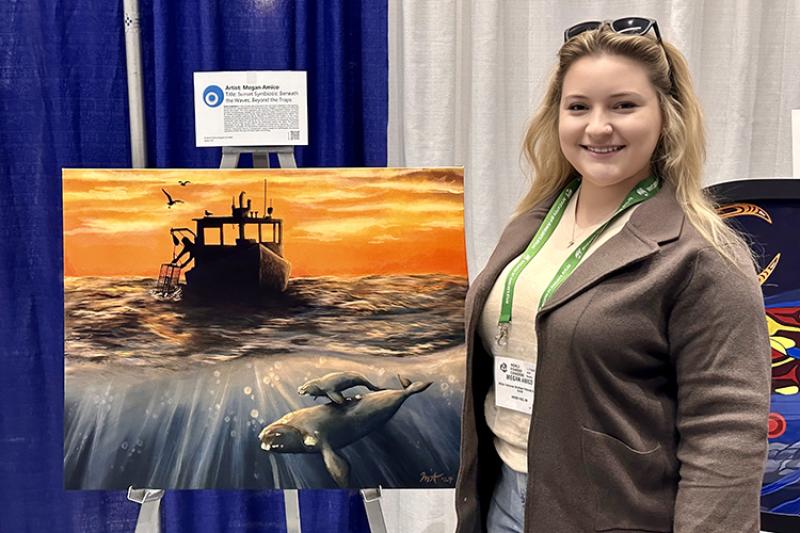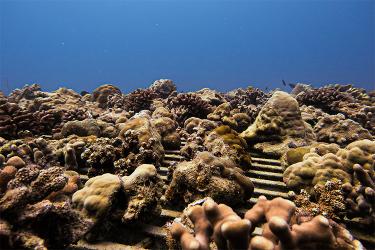Megan Amico is the gear researcher and fish biologist for our science center’s Risk Assessment and Mitigation Branch. She collaborates with commercial fishermen to explore and evaluate on-demand gear that could reduce North Atlantic right whale entanglements and help ensure the survival of local fishing industries. She also works on evaluating the use of a low-profile gillnet to reduce sea turtle bycatch and assists white shark research through passive acoustics. Her home base is at our Woods Hole Lab in Woods Hole, Massachusetts.
Can you tell us a little about yourself—where you grew up, how you got interested in science, where you went to college?
When I was a toddler, my parents took me to SeaWorld and I fell in love with killer whales and all things ocean. I grew up about 20 minutes west of Boston, Massachusetts. My younger brother, sister, and I were very lucky to spend a lot of time on Cape Cod, Massachusetts, and in Maine. So, I was exposed to the ocean from a very early age.
Instead of building sandcastles or splashing in the waves, I was poking around tide pools looking for sea creatures. I feel extremely fortunate to have known that this is the path I want to be on for pretty much my whole life. To actually be able to say that I am a marine biologist—I know that isn’t the case for a lot of people.
I attended the University of Maine in Orono and graduated in 2019 with a bachelor’s degree in marine science. Last year, I completed my master’s degree through Unity Environmental University studying the conservation of marine predators. I partnered with the Atlantic White Shark Conservancy for my master’s research on great white sharks off the coast of Cape Cod… which is still super surreal to me since I grew up watching Greg Skomal and the Atlantic White Shark Conservancy on Shark Week.
What do you love most about your job or your career?
I love knowing that my work is making a direct impact on reducing protected species bycatch in fisheries as well as protecting one of the world’s most endangered species— the North Atlantic right whale. But I also love being able to advocate for fishermen and coastal communities to ensure their longevity. Working waterfronts are critical for local and state economies. I’m proud of the work my team and I are doing to provide industry members with an opportunity to fish within closed areas and maintain their livelihoods.
What advice do you have for the next generation of women scientists about a career in fisheries and/or marine science?
It’s normal if your path into your field isn’t linear! My career with the science center started after some time working in other areas. I worked as a Northeast fisheries observer, at Starbucks, and even as a microbiologist before starting at NOAA. Keep making connections and pursuing the field you are passionate about. Don’t give up… your time will come!






